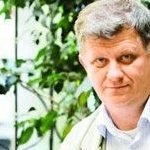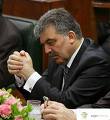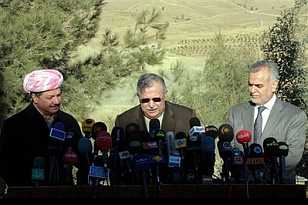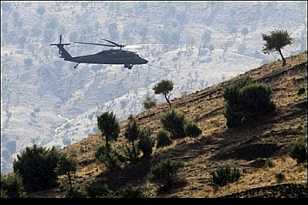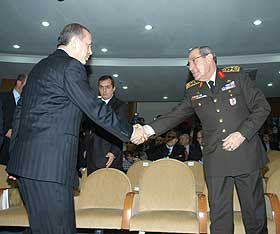Interview with Ertugrul Kürkcü I
Kurdish Issue: A New Concept Based on Class Divisions
The interview with Ertugrul Kürkcü in La Hague was published in the Yeni Özgür Politika newspaper in Germany on 31 December. The interview, conducted by Roni Yildirim, is here published in two parts, the first being concerned with cross-border operations. The second part, on "society and media", will follow tomorrow.
The Turkish Armed Forces are violating international law; Using the PKK as a justification, they are bombing civilian settlements in Southern Kurdistan. The Turkish media has been following the operations in an exaggerated manner for days. How do you interpret these developments?
I think that the information given to us by the Turkish Armed Forces and the media is only part of the truth. To be honest, I do not believe that this is an operation aimed at destroying the PKK forces positioned within the borders of Northern Iraq, as I think that those targets are not known. Everyone knows that a guerrilla movement does not have barracks, hospitals and headquarters like a regular army unit. They are mostly among the civilians and irregularly placed. Thus anyone busy with the military arts knows that this was and will not be the case. That is why I do not think that the leaders of the armed forces believe their own announcements. This is what the people and the media want to believe.
So, why does the Turkish army attempt such operations if it does not believe in their success?
This is not a direct operation targeting the PKK; I believe it is an indirect regional operation. The real issue here is to show the regional powers in Iraq, Syria and Iran Turkey's military capacity. Turkey is saying: "We see the Kurdish question as a regional issue, and we are determined to solved it at a regional level or deal with it ourselves. Do not interfere with our decision, and do not try to prevent us from carrying it out. Here you can see our force."
How is this show of strength related to the process?
Primarily, the aim is to engage the Iraqi government and the Kurdistan regional government in the solution, or the situation presented as a solution by the USA. If this does not work, the operations aim at showing what might happen by destroying a few mountain rocks, a few schools and a few people. This military operation has followed Turkey's long-term diplomatic attack. This has nothing to do with "point targets". In addition, the Turkish Armed Forces have been able to carry out extensive air operation drills because of these operations. Furthermore, the operation has also served to appease the public anger which has been incited with the equation that the issue will not be solved without intervening in Northern Iraq.
To be honest, nobody, not even the General Staff, has clear information on the material and human loss resulting from these operations. They did not announce clear numbers anyway because the aim, as I said, was not to destroy. The Northern Iraqi government may have been led to reviewing its relationship with Turkey through these operations. It seems that Turkey is hoping to solve the Kurdish problem not in Turkey's Kurdistan, but in Iraq's Kurdistan. There are two steps involved here: The first step is to pull Barzani onto Ankara's side in return for political and economic relations. The second step is for the ruling Justice and Development Party (AKP) in Turkey to fuel the religious movement in the southeastern region and to use the religious attachment of the Kurds as a lever to control the region itself. This is how I interpret these operations. This is also the recommendation of the USA, and the operations have been limited. Rather than an operation of destruction, I see this as a military operation accompanied by diplomacy, and an operation staying within the US formula.
Why did the USA let Turkey use its airspace?
America has decided to support Turkey. Turkey has been a Nato member for 65 to 70 years and is an ally. The USA has answered the question "Turkey or the Kurds?" by supporting Turkey. This choice, which neutralises the wealthy and dominant Kurds and opposes the poor and struggling KUrds, is really pointing towards a class struggle. What I mean is that a new concept based on class has been put forward. I have observed that Kurds, be they in Turkey or Northern Iraq, have divided along class lines. The wealthy, rich Kurds who are part of the system are then, willingly or not, pulled towards the US-Turkey axis. [...] I think the operations are also a turning point, not in terms of loss of human life, but in terms of the political, diplomatic and class results. (RY/EK/AG)




